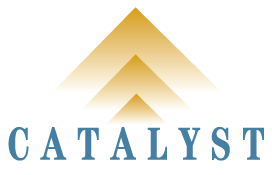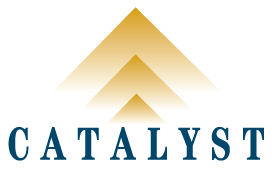-
Pricing Legal Services
- April 15, 2021
- Category: Managing Total Legal Spend
- Publication: Lexpert, February 2016 at pg 66
A pathway to non-hourly fees for regular and complex legal work is outlined. The most appropriate configuration of alternative fee arrangements will stimulate efficiency, effectiveness and innovation in external counsel. The article simulates a costing of work allocation to multiple firms. Four factors are proposed when evaluating the projected costs of external counsel when conducting a sourcing initiative.
-
Scoping Legal Services
- April 1, 2021
- Category: Managing Total Legal Spend
- Publication: Lexpert, February 2016 at pg 66
Scoping is that portion of the Request for Proposals designed to inform law firms of the scope of work to achieve the company’s objectives. The article focuses on portfolios of work and multiple jurisdictions. The importance of historical data, preferred practice patterns by legal specialty for law firms, and four considerations when developing multi-year projections are outlined.
-
Securing Sponsorship from Legal
- March 18, 2021
- Category: Managing Total Legal Spend
- Publication: Lexpert, February 2016 at pg 66
The article describes some steps for the Law Department and Procurement to formalize a collaboration arrangement for sourcing external legal services. These include a formal program, non-financial objectives and financial targets, and detailing responsibilities for legal leadership, legal operations, and Procurement.
-
The Definitive Guide to Buying Legal Services
- March 15, 2021
- Category: Managing Total Legal Spend
- Publication: Lexpert, February 2016 at pg 66
As one of 17 co-authors, Richard wrote the chapters on Securing Sponsorship from Legal, Scoping Legal Services, Pricing Legal Services, Negotiating Legal Fees. Released in early March 2021, the Definitive Guide contains insights from North American and European procurement, management consultants, and legal and technology professionals. It should be read by law department leadership and law firms alike.
-
LEAN for Law Departments and Law Firms
- March 4, 2021
- Category: Positioning and Strategy
- Publication: Canadian Lawyer In-House, May 13th, 2019
Six processes support process improvement. The first three focus on the customer for value engagement. They include value creation, figuring out how the work gets done and removing waste. The fourth requires evidence-based decision-making, fifth is people empowerment, and the last is sustainable process improvement.
Process improvement will be successful when client behaviours change to require less legal service and more self-sufficiency from clients. -
Priorities and Backlogs
- January 8, 2021
- Category: Workflows and Workloads
- Publication: Canadian Lawyer In-House, posted 7 January 2021; and Legal Business World, Issue 1 (2021)
Law departments do not allocate work like law firms. There are rarely any junior lawyers and too many paralegal tasks are done by lawyers. Accurate data on the number of matters, complexity levels, and hours by client is hard to come by without timekeeping, though techniques for accurate estimates are readily available. General Counsel are challenged to change resource allocation patterns, defaulting instead to simply responding to daily demands for service. Inside counsel are able to estimate the proportion of their year spent on matters that require 0-5 hours, 6-25 hours and more than 25 hours. Some law departments and senior counsel spend as much as 40% of their time on operational support usually on matters requiring less than 5 hours to complete. It is difficult to be strategic when one is engaged in this way.
-
Allocate Time Strategically in 2021
- December 14, 2020
- Category: Workflows and Workloads
- Publication: Legal Business World, Issue 8 (2020), pg 36 Canadian Lawyer In-House, December 2020
People who are paid more to work tend to work more hours. Altman Weil’s 2020 Chief Legal Officer Flash Survey reported that, in spite of the pandemic, this averaged out to 10% more. A 45-hour week becomes a 50-hour week.
Productivity gains of at least 10% are readily available when law departments work to have their non-core clients be more self-sufficient. It is noted that 40% of workloads for core clients is still routine work. General Counsel should have an accurate picture of the current and future demand for their department’s services. They should introduce work intake protocols to reduce routine work by 50%. Finally, they should attend to the practice management habits of each member of the law department. -
Adaptable and Resilient Law Departments Add Value
- November 5, 2020
- Category: Positioning and Strategy
- Publication: Canadian Lawyer In-House, website, published on 5 Nov 2020 Legal Business World, Issue 7 (2020) on page 23
Six Chief Legal Officers share their views about the current state of their law departments and the outlook for the next six months. The article covers workflows and workloads, the relationship of the law department with business units, law department resources, performance and the relative use of external counsel.
-
Thoughts on Pricing Legal Services
- October 9, 2020
- Category: Managing Total Legal Spend
- Publication: Legal Business World (Issue 6-2020) at pg 53 and Canadian Lawyer In-House website, posted 8 October 2020
One study reported that 65% of 316 companies surveyed did not consider or did not heavily use Alternative Fee Arrangements (AFAs). Legal and Procurement departments must be highly proficient in law firm economics, AFAs, law firm culture, and partner compensation systems. Specific questions are recommended for inclusion in the Request for Proposals (RFP). Fee arrangements must demonstrate efficiency, effectiveness, and innovation in legal work and in service delivery.
-
Critical Preparations
- August 15, 2020
- Category: Managing Total Legal Spend
- Publication: Canadian Lawyer In-House, Website, Opinion section Legal Business World, Issue 5 (2020)
There are preparations critical to effective sourcing of external legal services. A formal set of financial and non-financial objectives should be reduced to writing and agreed upon between the Law and Procurement departments. The roles and responsibilities for each should be explicit with the law department focused on non-financial negotiations with law firms. The Request for Proposals or Invitation should detail the scope of work for the reference period and it should ask a range of financial questions as well as address operating and professional practices.
Articles on Demand – Archive

